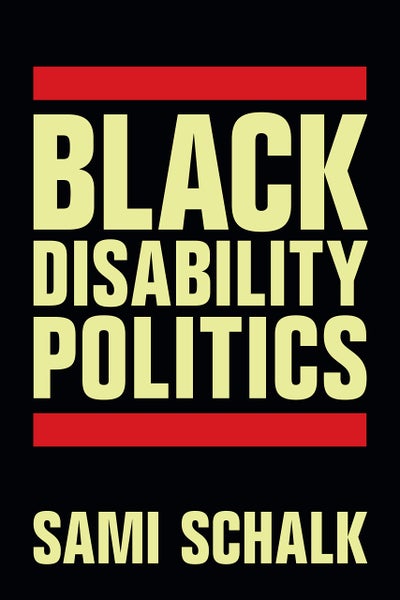Essence Magazine:
By Lynnette Nicholas· Updated October 25, 2022
In her newest book, Black Disability Politics, Dr. Sami Schalk, Associate Professor of Gender and Women’s Studies at the University of Wisconsin-Madison discusses the parallels between racial activism and advocacy for the differently abled. Relying heavily on research, the book partners the archives of the Black Panther Party and the National Black Women’s Project with interviews of present day Black disabled cultural workers. ESSENCE recently spoke with Schalk about her book, set for release October 31, and the role that systemic oppression plays in disability politics.
For those who may not have familiarity with Black disability politics, can you define what it is?
SAMI SCHALK (SS): I define disability politics generally as engagement with disability as a social and political issue rather than as simply an individual and medical concern. Black disability politics specifically then are anti-ableist arguments and actions performed by Black cultural workers which address disability socially and politically within the contexts of anti-Black racism. Black disability politics are often performed in solidarity with disabled people collectively, but Black disability political work does not necessarily center traditional disability rights language and approaches, such as disability pride or civil rights inclusion. The book identifies and analyzes examples of Black disability politics in order to correct the frequent overlooking and misrecognition that has typically occurred in scholarly evaluations of disability in Black activism and culture.

What life experience or realization inspired you to write this book?
SS: I’ve been studying in the field of disability studies for a long time, ever since I took a class called Women & Disability as a sophomore in college. Even then I was really interested in how disability studies didn’t talk a lot about race and how in my Black literature and Black feminism classes, disability wasn’t being talked about with the same critical lens as it was in my disability studies class—if disability was talked about at all. In my time as a disability studies scholar, I have often been the only Black person in the room. In my experiences with Black liberation work, I have often been the only person talking about disability and accessibility. This book came from wanting to lift up and expand my community of Black people who care deeply about disability as a political and social issue, especially Black disabled people. I didn’t want to be the only person in the room anymore. So I wrote the book to highlight and honor some of the cultural workers who have done or are doing this work and to offer a theoretical framework to help more people understand how and why Black disability politics may look different from the mainstream, predominantly white disability rights movement.
“In my time as a disability studies scholar, I have often been the only Black person in the room. In my experiences with Black liberation work, I have often been the only person talking about disability and accessibility.”
According to your research, what’s the correlation between Black Activism and disability advocacy work?
SS: Black activism has often included disability advocacy work, but
The post Scholar Sami Schalk Seeks To Merge The Worlds Of Black Activism And Disability Advocacy With Her New Book appeared first on Essence.
This post first appeared in Essence Magazine. Read the original article.


